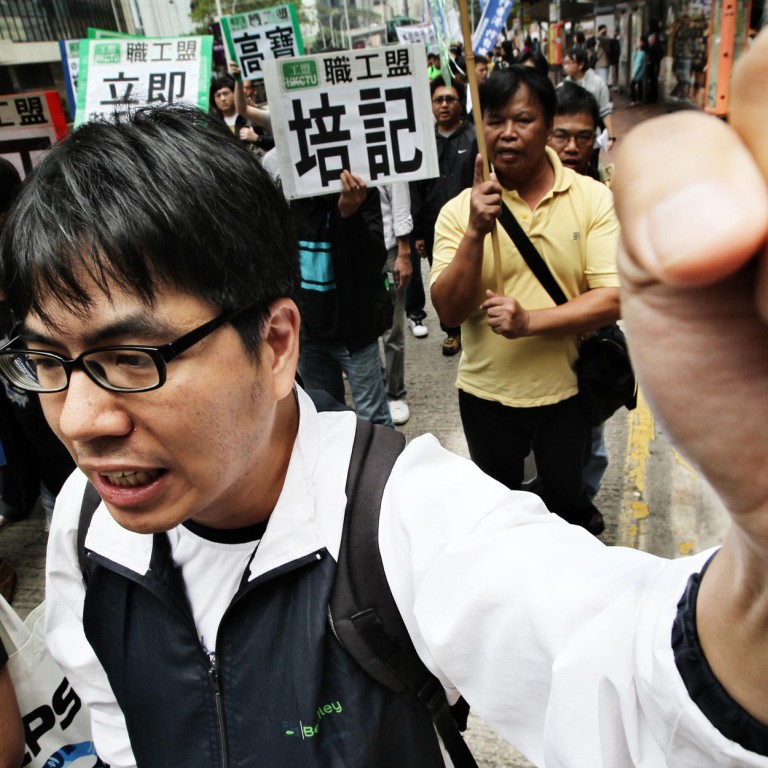
Dockers face tough battle, veterans say
Workers may have a hard time repeating the success of the bar-benders’ 36-day strike in 2007 that won them a pay rise, unionists say
Dockers staging a strike at the Kwai Tsing Container Terminals face a tougher battle than construction bar-benders, whose month-long action yielded a 14 per cent pay rise in 2007, veteran unionists say.
One reason is the increasing politicisation of the strike that may delay a settlement and another is the contractors' history of ignoring pay demands, they say.
With a court injunction imposed yesterday, requiring the strikers to leave the terminals, the dockers said last night they were still planning their next step.
Luk Kwan-ngai, a unionist behind the bar-benders' strike in 2007, said he was "not very confident" that the dockers were using the right strategy to win. Reflecting on the 36-day strike that forced building contractors to offer the pay rise, Luk said the dockers apparently overlooked one crucial factor - presenting their demands in a way that would win majority public support.
In general, "if strikers can successfully turn the public against the company, the company will definitely be willing to talk quickly", the chairman of the Construction Industry Bar-bending Workers Union said. There was also the risk of the industrial action growing more politicised or even radical, he said, with more political parties, including the Democrats, and other groups backing the strike.
If strikers can successfully turn the public against the company, the company will definitely be willing to talk quickly
Chan Chiu-wai, an organising co-ordinator with the Confederation of Trade Unions, which organised the strike, agreed public support was paramount. But the media had responded positively to their action, he noted.
Much of the backing, he admitted, was due to the name Li Ka-shing - whose companies control the terminals and who is seen by many as symbolising business hegemony.
Chan said both dockers and bar-benders had accepted salary cuts after the financial crisis in 1997 and the Sars outbreak in 2003. But when the economy improved and inflation rose, they did not receive pay rises, despite repeated requests. Speaking among crowds of dockers, Chan said the key "is to slow down the port operation. Let's see how many days it can stand."
Li's Hongkong International Terminals later told the its average berthing delay was forecast to be 20 times longer than usual until Thursday.
Chan accused HIT of exerting influence on the contractors who hired the striking staff.
Apart from contractors agreeing among themselves not to hire staff from one other - so as to retain most staff at employment terms within their control - Chan said a contractor was once rejected by HIT over a proposal to raise pay by more than 5 per cent.
An HIT spokeswoman said such salary matters were negotiated between the contractors and workers.


